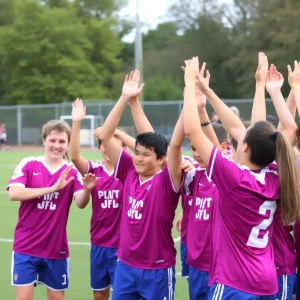Columbia: ACLU Files Lawsuit Over Voter Registration Issues
As the countdown to election day ticks down to just two weeks, a significant **legal challenge** has emerged in South Carolina. The state’s chapter of the American Civil Liberties Union (ACLU) has taken the bold step of filing a lawsuit against the South Carolina Department of Motor Vehicles (DMV). The crux of the matter? The ACLU alleges that the DMV has unlawfully denied voter registration opportunities to thousands of eligible South Carolinians, particularly those in the 17-year-old age bracket.
A Staggering Number of Missed Opportunities
According to the ACLU, the magnitude of this issue is not just troubling, it’s downright staggering. In the past **13 months**, a staggering **17,564** individuals who were **17 years old** at the time were denied the chance to register to vote, even though many would be **turning 18** and thus eligible to cast their ballots by the upcoming election. This figure raises serious concerns about whether young people in South Carolina are being adequately informed and given the opportunity to engage in the civic process.
The Process That Should Have Been
By law, when individuals apply for a driver’s license in South Carolina, they are presented with the opportunity to register to vote. This includes those young folks who are 17 but will hit that crucial milestone of 18 by the time the next election rolls around. The DMV is legally obligated to pass this information along to the South Carolina Election Commission within a span of **10 days**. Unfortunately, this has not been happening for thousands of eligible 17-year-olds.
The ACLU’s lawsuit points out that despite many applicants expressing a desire to register to vote, they were never given the appropriate forms or given timely assistance. It appears there is a pattern at the DMV of **screening out registrants based on age**, which raises some very important questions about fairness and access to the democratic process.
Legal Action and Next Steps
This lawsuit has been officially filed in **Richland County common pleas court** against both the DMV and the state Election Commission. To combat this apparent injustice, the ACLU is requesting a preliminary injunction, which would require a judge to order the DMV to stop this screening practice and ensure that the Election Commission adds those excluded voters back to their rolls. This would ideally be backdated to when they should have been allowed to submit their applications.
DMV’s Response
In light of the ACLU’s allegations and the lawsuit, Mike Fitts, public information officer for the South Carolina DMV, acknowledged that the agency is aware of the concerns raised. He stated that the DMV is collaborating with the State Election Commission to find possible remedies for the situation. Fitts also encouraged all South Carolina residents to verify their voter registration status through the appropriate state website, emphasizing the importance of being informed and prepared.
Hope for Young Voters
The South Carolina DMV has taken steps to identify the affected individuals and, strikingly, has noted that approximately **6,000** of those who missed registration were ultimately able to register through other means. Allen Chaney, the legal director of the ACLU of South Carolina, expressed appreciation for the proactive approach taken by the DMV in identifying those impacted by this situation. Chaney hopes the court will heed the request to ensure that these young individuals can mark their ballots come Election Day.
Election Commission’s Position
As for the South Carolina Election Commission, they have been aware of the lawsuit as well. However, a spokesperson has declined to comment on any active legal proceedings. This leaves many wondering what action the Election Commission might take if the court rules in favor of the ACLU.
With election day rapidly approaching, the spotlight is now on South Carolina to see how these challenges of voter registration get resolved and to ensure that all citizens, especially younger first-time voters, have their voices heard.









